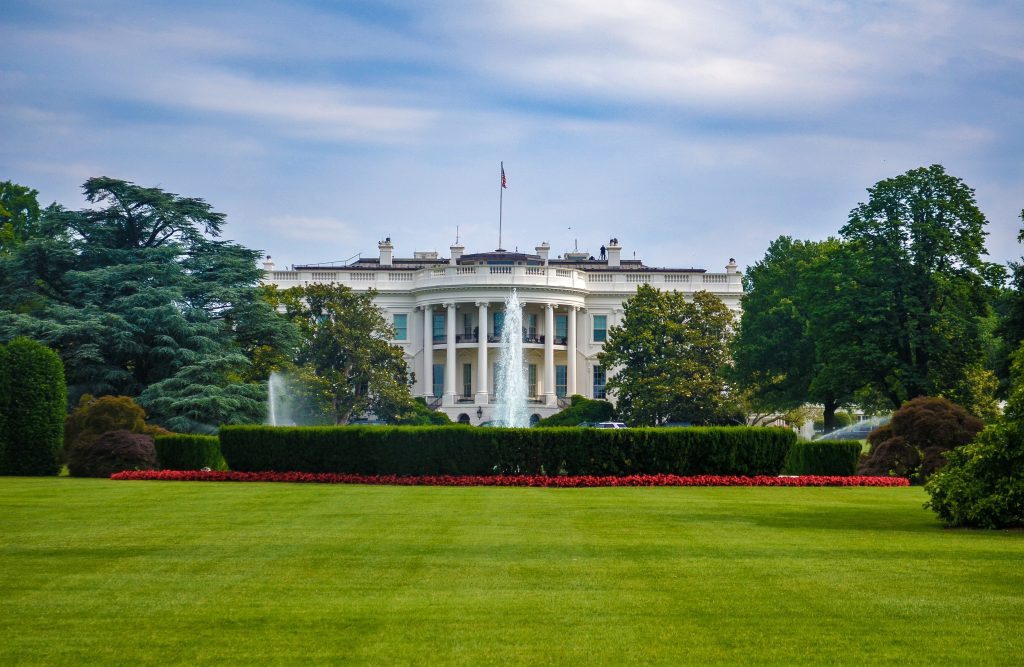A new University of Notre Dame research program overseen by former White House Chief of Staff Denis McDonough finds that Democratic and Republican transition teams have fulfilled 73 percent of the obligations required by law for a presidential transition.
Though most American voters are not aware that preparations for a presidential transition begin months before voting in anticipation of an election outcome, by law both political parties must prepare for an exchange of materials, identification of key personnel, processing of security clearances and preparation of workspaces. Transition teams are required to comply with these statutory requirements, although the transition process cannot legally proceed until the General Services Administration (GSA) ascertains the outcome of the election.
“We are trying to answer two fundamental questions: Is the presidential transition happening or not, and is it happening in a qualitatively good way? We’ve designed our research to respond to these questions by talking to stakeholders who are involved with and examining transition activities in real time,” said McDonough.
A professor of the practice of public policy at Notre Dame’s Keough School of Global Affairs, McDonough notes that the program’s findings offer initial insight into transition efforts made before the election, but the quality of the actual transition to come, now and through Inauguration Day, is not yet clear.
“The period of transition is a period of vulnerability for our country,” McDonough said. “The American people have a stake in—and a right to know—how the transition from campaign to governance is being handled. Our research is providing a window into this important moment in time for the American public.”
The new research program, called the Presidential Transition Index (PTI), aims to identify potentially weak areas of the presidential transition process and to provide the public with an ongoing, near real-time assessment of the 2020 transition.
McDonough speaks from his own experience having participated in the transition from the Bush administration to the Obama administration in 2008 and 2009, and having overseen the transition from the Obama administration to the Trump administration in 2016 and 2017.
“The United States was, in 2009, in the middle of the great recession and two wars, in Iraq and in Afghanistan. As the incoming team, we wanted to be sure we were as ready as possible to confront those challenges.
“The stakes are even higher now,” McDonough said. “The pandemic won’t stop for the transition. So this period of preparation and information-sharing is critical for the country.”
To conduct the research, a team of master of global affairs and political science doctoral students collected data from a range of documents produced by the GSA, the White House and civil society organizations. Students evaluated six statutes classified by the GSA as pertaining to presidential transitions, then identified and analyzed 46 variables that capture unambiguous requirements for a smooth presidential transition. These variables include practical aspects of transitions (e.g., providing office space for transition teams), management of transition agencies and institutions (e.g., establishing a White House Transition Coordinating Council) and the creation of guidelines on ethics, national security and communications, among other things.
Their research indicates that the Biden transition team has published its ethics plan on schedule and the Trump administration has established a White House Transition Coordinating Council, as required by law. It is unclear if former Vice President Joe Biden has appointed a designated transition representative, or if the Trump administration has issued guidance to executive departments and agencies regarding briefing materials for an incoming administration.
McDonough said the launch of this new research program also provides a valuable educational experience for the students involved.
“The students and I decided it was important to put their classroom learning into action, addressing key questions of democracy, governance and effective institutions,” he said. “All of these questions are at the heart of what the Keough School is all about—training future global leaders to make, advocate and execute policies that advance the fundamental dignity of every person.”
The research team expects to publish two reports, in December and January respectively. Both will chart the progress of this year’s presidential transition through Inauguration Day. Analysis will cover both possible election scenarios: a transition from President Donald Trump to Biden, or a transition from a first Trump term to a second Trump term.
To receive updates from the PTI team, visit the transition dashboard here.
Photo: David Everett Strickler for Unsplash



